ANCIENT WELLNESS IN MY HOMETOWN
Jun 15, 2025
THE ANCIENT SOUND SOUNDS OF HEALING: MY VISIT TO A 15TH CENTURY WELLNESS CENTER IN EDIRNE
During my last trip to Turkey, I found myself walking through the historic streets of Edirne—my father’s hometown and the once-glorious third capital of the Ottoman Empire.
Nestled near the banks of the Tundzha River, Edirne is more than a city of UNESCO World Heritage recognized mosques and markets. It holds the second-highest number of historical works per square meter in the world after Florence.
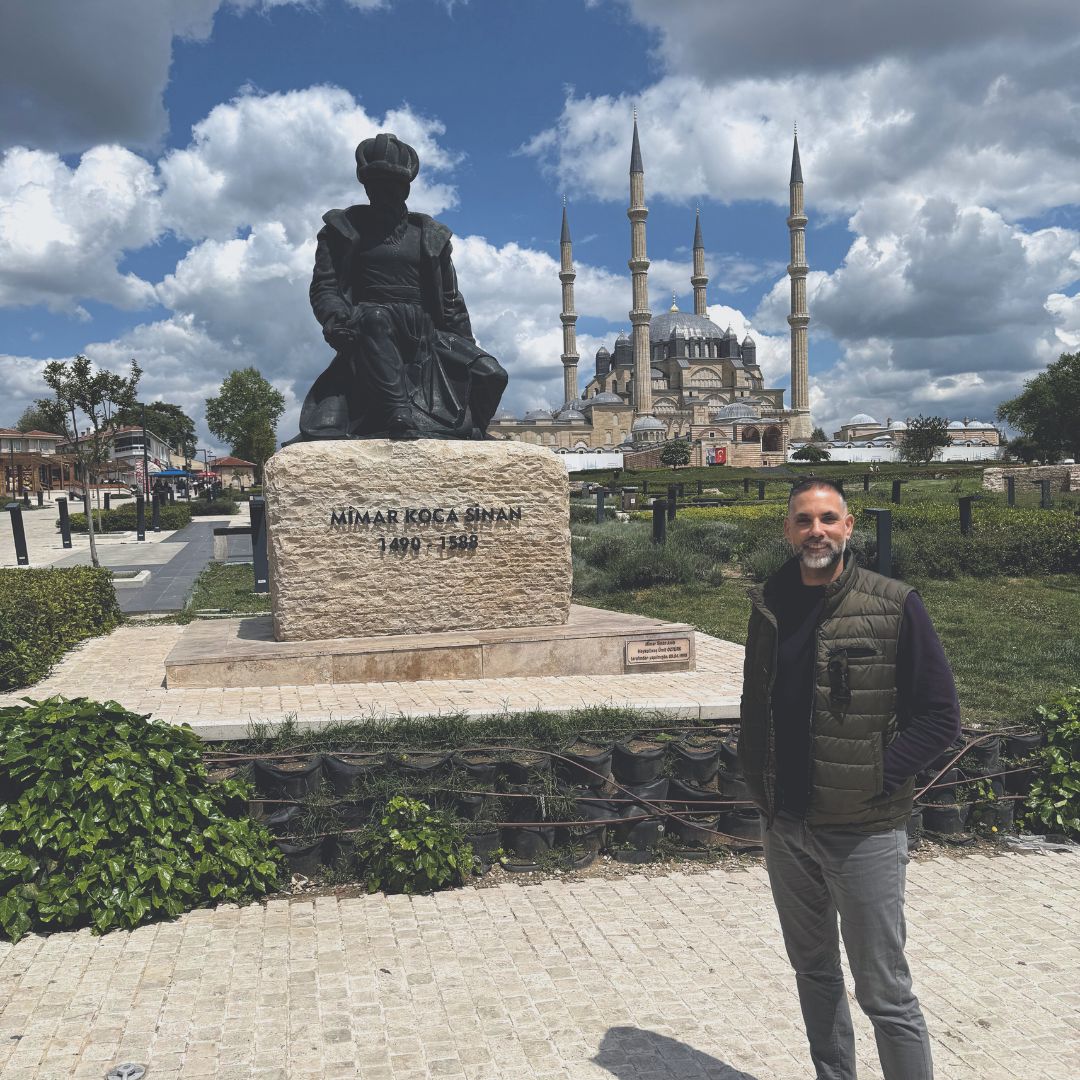
But my journey there wasn’t about history alone. It was personal. It was spiritual. And it left me feeling in deep alignment with the roots of wellness.
Because tucked away in this city of secrets is a masterpiece that reassured how I understand healing: the Sultan Bayezid II Wellness Center.
A PORTAL TO THE PAST
While much of Europe was still recovering from the aftermath of the Black Death—a plague that had devastated the continent just a century earlier—the Ottomans were quietly advancing a radically different approach to healing.
Far from the chaos and contagion that defined medieval European medicine, they were building sanctuaries of peace, balance, and natural harmony.
Built in 1484 by Sultan Bayezid II, the son of Sultan Mehmed the Conqueror, this wellness center was centuries ahead of its time.
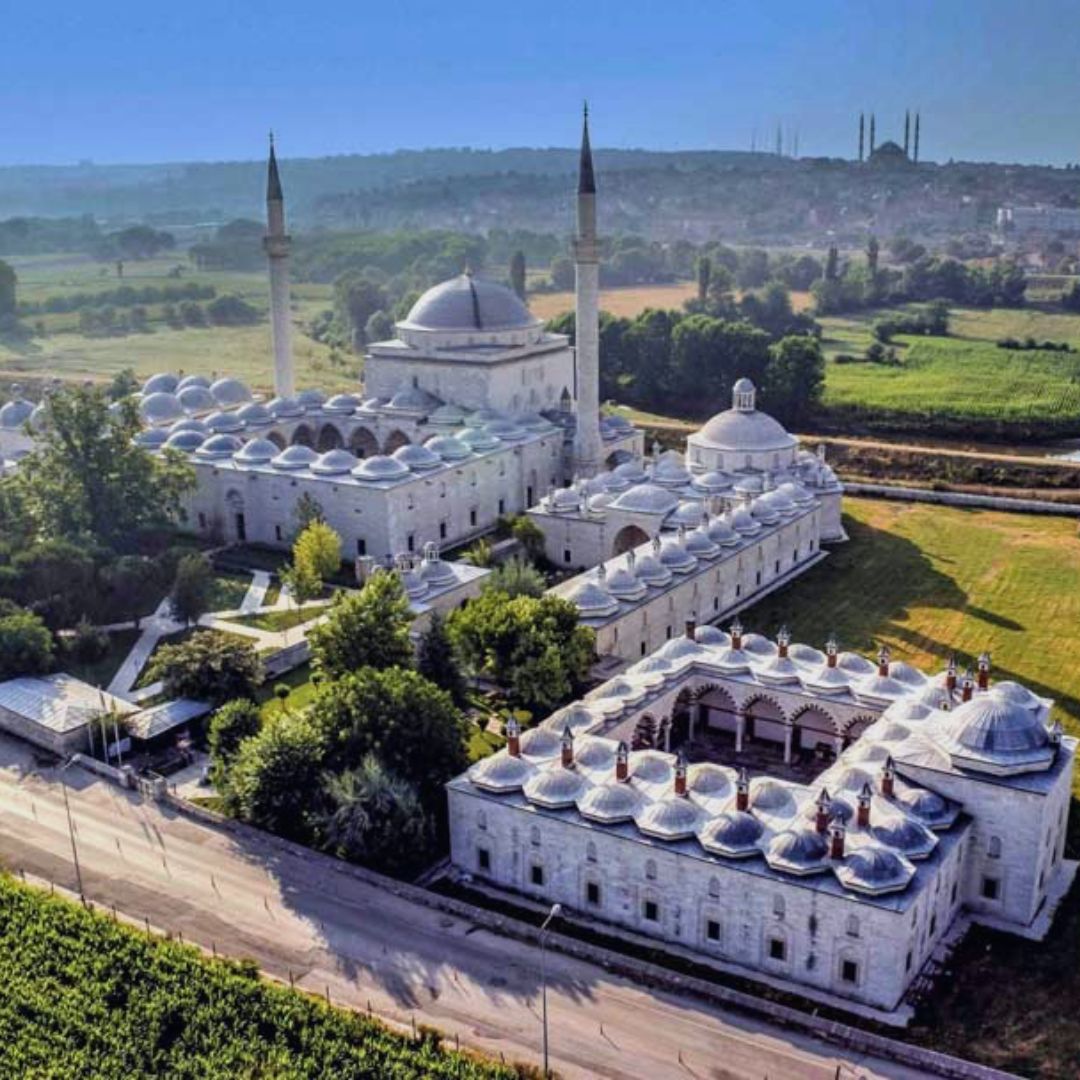
It wasn’t just a hospital. It was a sanctuary.
Designed to treat patients suffering from mental health conditions, the center blended science, nature, and spirituality in ways that modern hospitals are only now beginning to rediscover.
What struck me the most?
Patients weren’t treated with pills or isolation. They were treated with frequencies—the healing sounds of water and music.
As I walked through the ancient halls with my father, I could feel the echoes of flutes, the rhythm of fountains, and the intentional design behind every detail.
UNEXPECTED LESSONS WITH MY FATHER
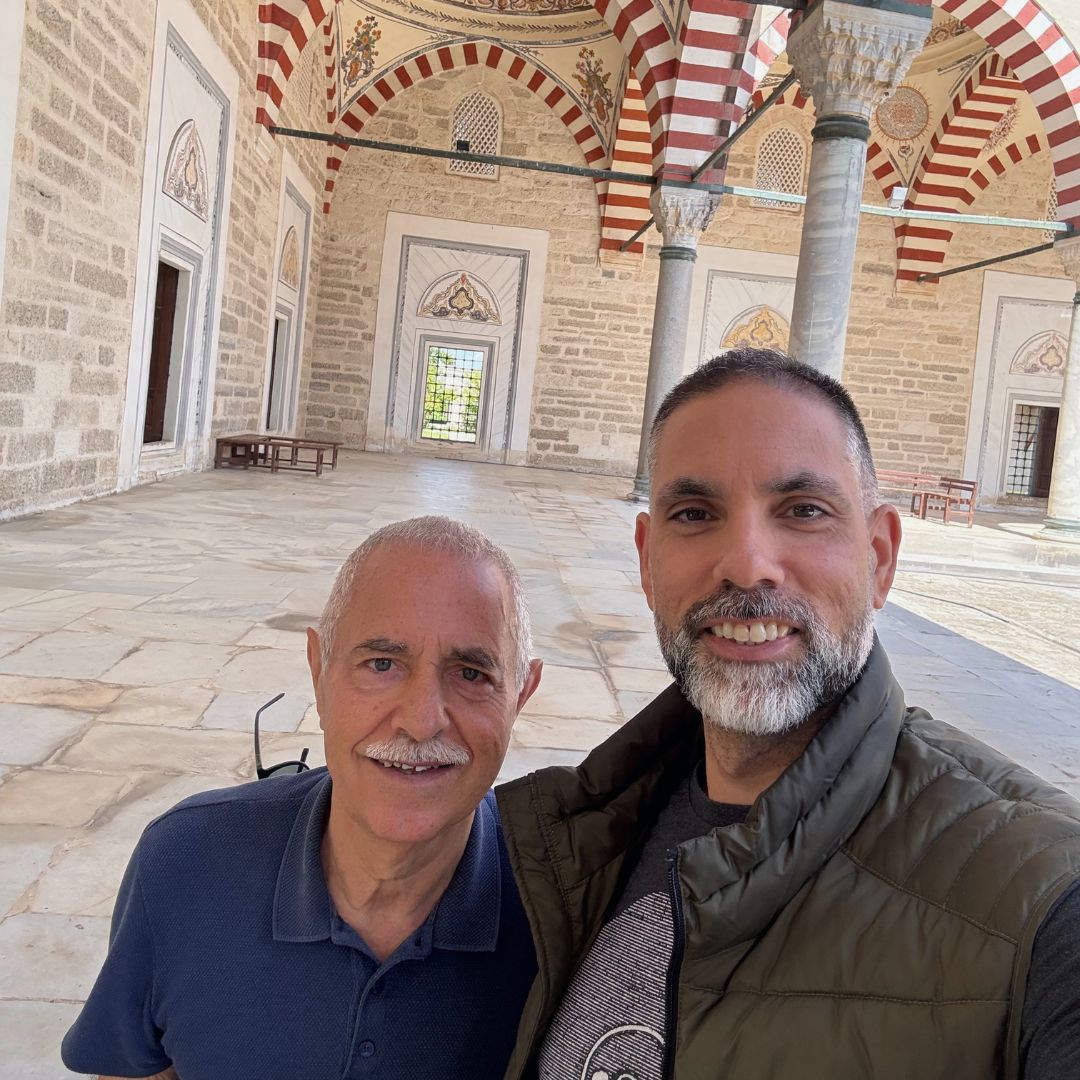
My dad thought we’d spend thirty minutes there, tops.
Instead, we wandered the space in awe for nearly two hours—and we could barely finish visiting half of the site.
We were both surprised by the depth of details, the serenity of the place, and how relevant it all still felt today.
It reminded us both how wisdom transcends time when it's rooted in truth and balance.
ARCHITECTURE WITH PURPOSE
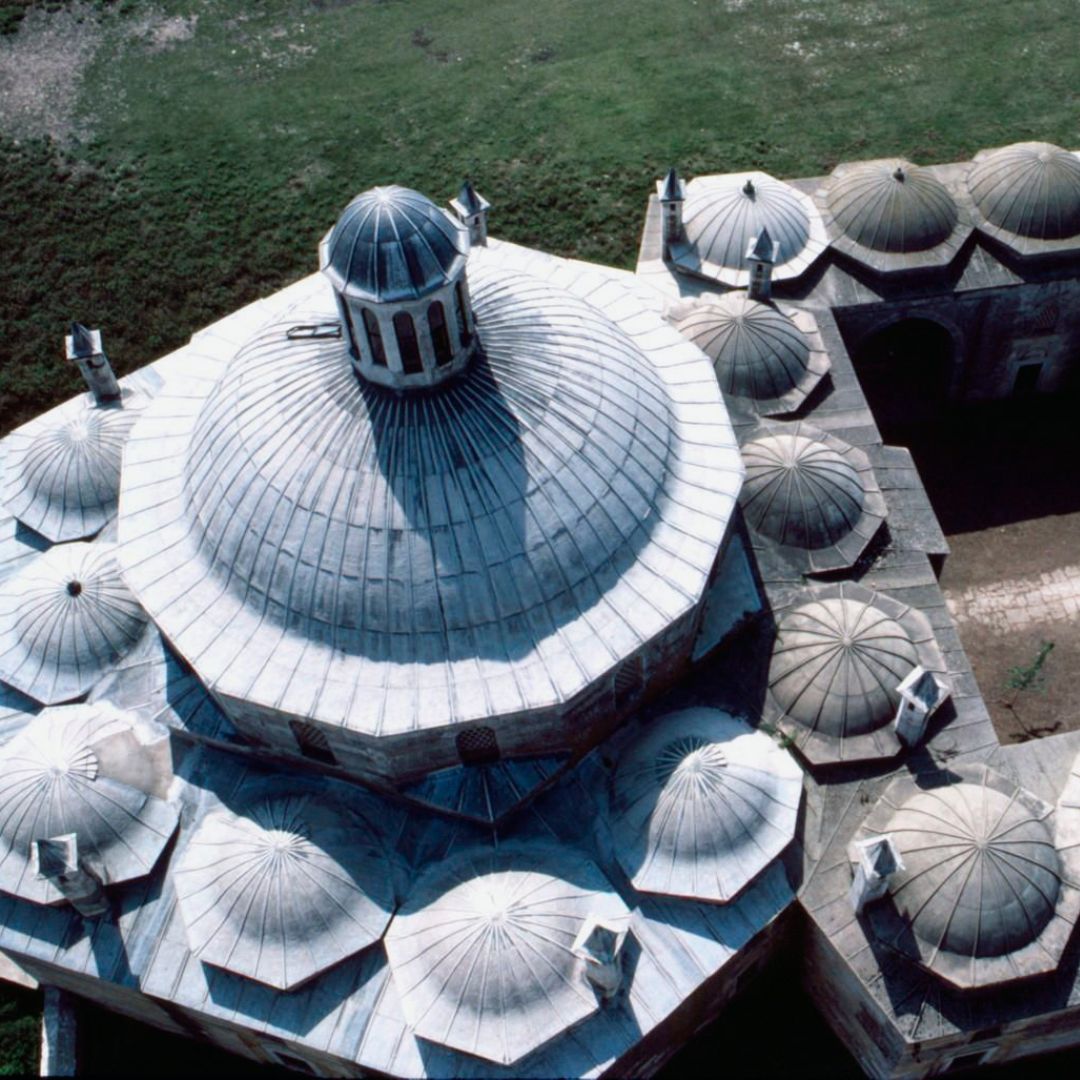
The structure itself is a masterpiece.
It follows a hexagonal layout that allowed up to 30 patients to be treated efficiently with a limited number of staff.
At its core is an oculus—a circular skylight that provided ventilation and acoustic brilliance.
Music played in the treatment rooms could be heard throughout the center, gently bathing every corner in healing frequencies.
Centuries later, this centralized structure inspired the design of 19th-century hospitals like Philadelphia Presbyterian (1885) and Johns Hopkins (1889).
But the Ottomans had it figured out centuries earlier.
HEALING WITH HARMONY: THE USE OF FREQUENCY
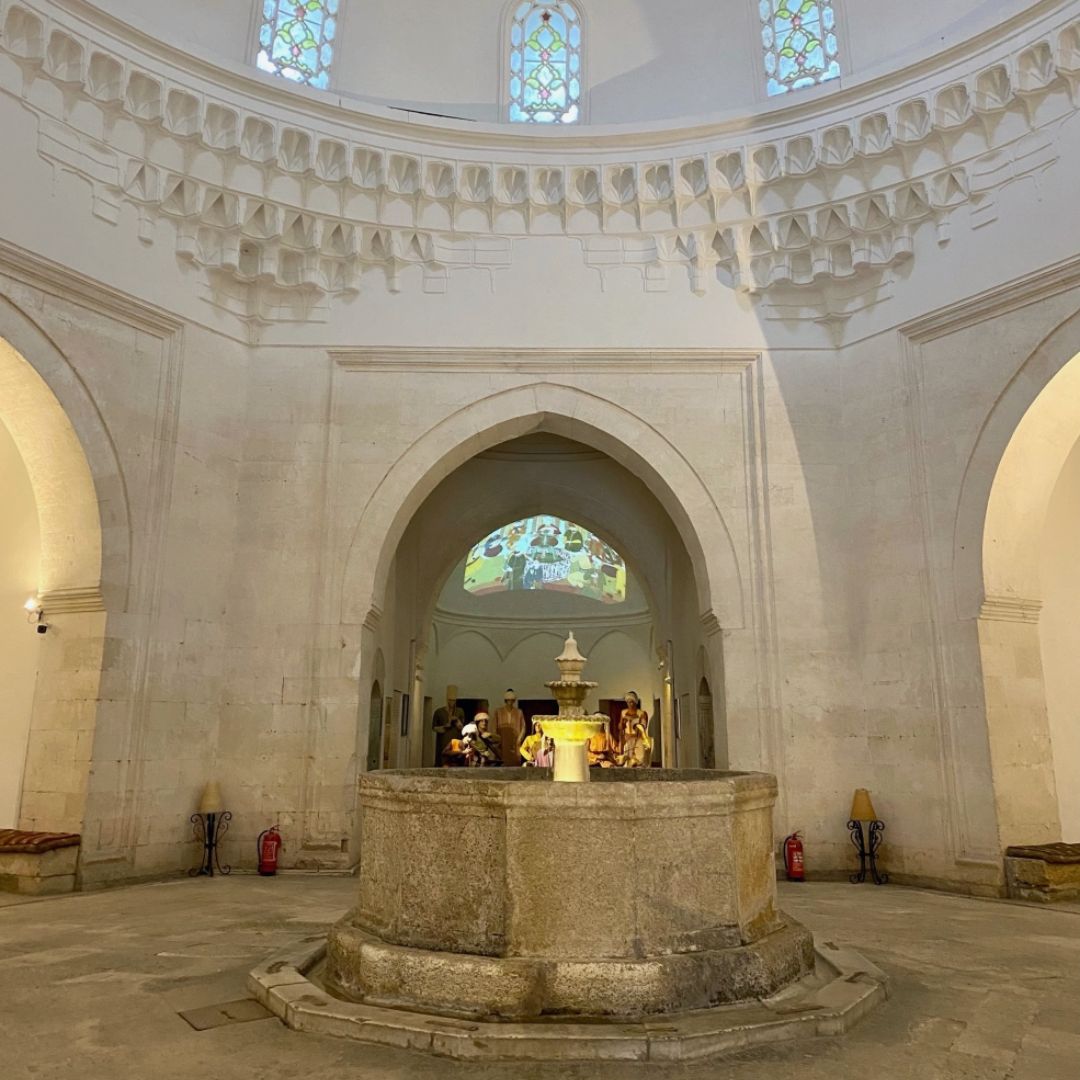
At this center, water and music weren’t just ambiance. They were medicine.
As someone working in holistic wellness today, I felt deeply connected walking through a treatment room filled with mannequins dressed in local costumes, surrounded by traditional musical instruments, with healing melodies gently playing in the background.
Patients would sit in silence. Eyes closed. Breathing slowly.
As the sound of flowing water harmonized with classical Ottoman instruments, it was clear: this wasn’t just sound therapy. This was soul alignment—a living reminder of how natural healing began. Long before supplements, apps, or biohacks, healing meant rhythm, connection, and presence.
Modern neuroscience now confirms what they practiced back then:
- Frequencies regulate brain waves
- Calm the nervous system
- And elevate emotional wellbeing
They weren’t just treating illness. They were restoring harmony.
THE PHILOSOPHY OF BALANCE: HUMORAL MEDICINE
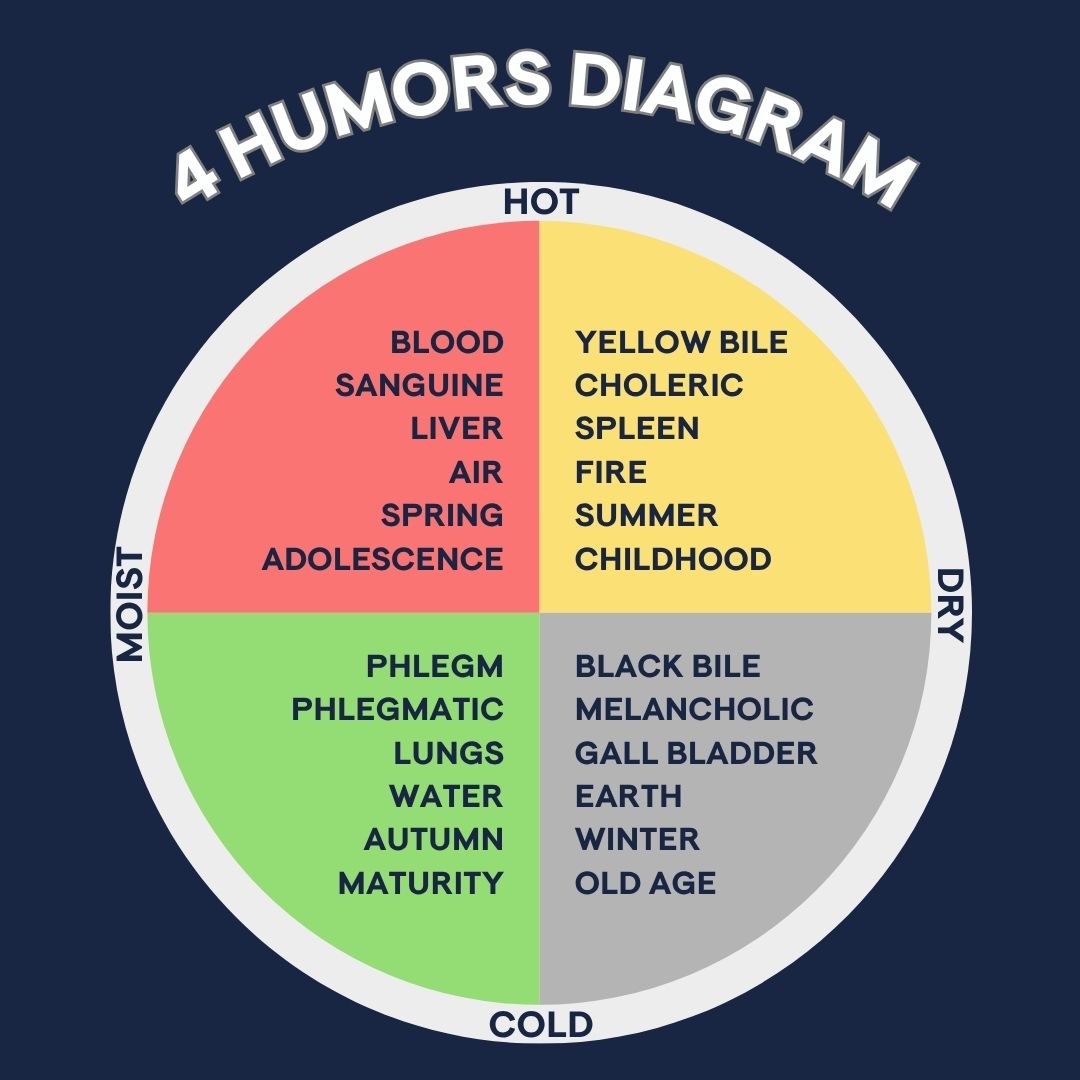
The wellness approach was based on "humoral pathology"—a system rooted in the balance of four bodily fluids, each tied to one of nature’s elements:
- Blood (Air) — Heart
- Yellow Bile (Fire) — Liver
- Black Bile (Earth) — Spleen
- Phlegm (Water) — Brain
The belief was simple but profound:
When these humors were in balance, health followed.
Healing came through everyday elements:
- The quality of air you breathe
- The food and water you consume
- Sleep patterns
- Movement and exercise
- Detoxing the bloodstream
Food wasn’t just nourishment. It was used to balance your inner chemistry.
Sleep wasn’t just rest. It was sacred repair.
It made me wonder: Is our society truly living in alignment with nature today, or just masking symptoms?
ANCIENT PRACTICES THAT STILL EXIST TODAY
I was amazed to see tools and techniques that mirror what we now call "modern wellness."
CUPPING THERAPY
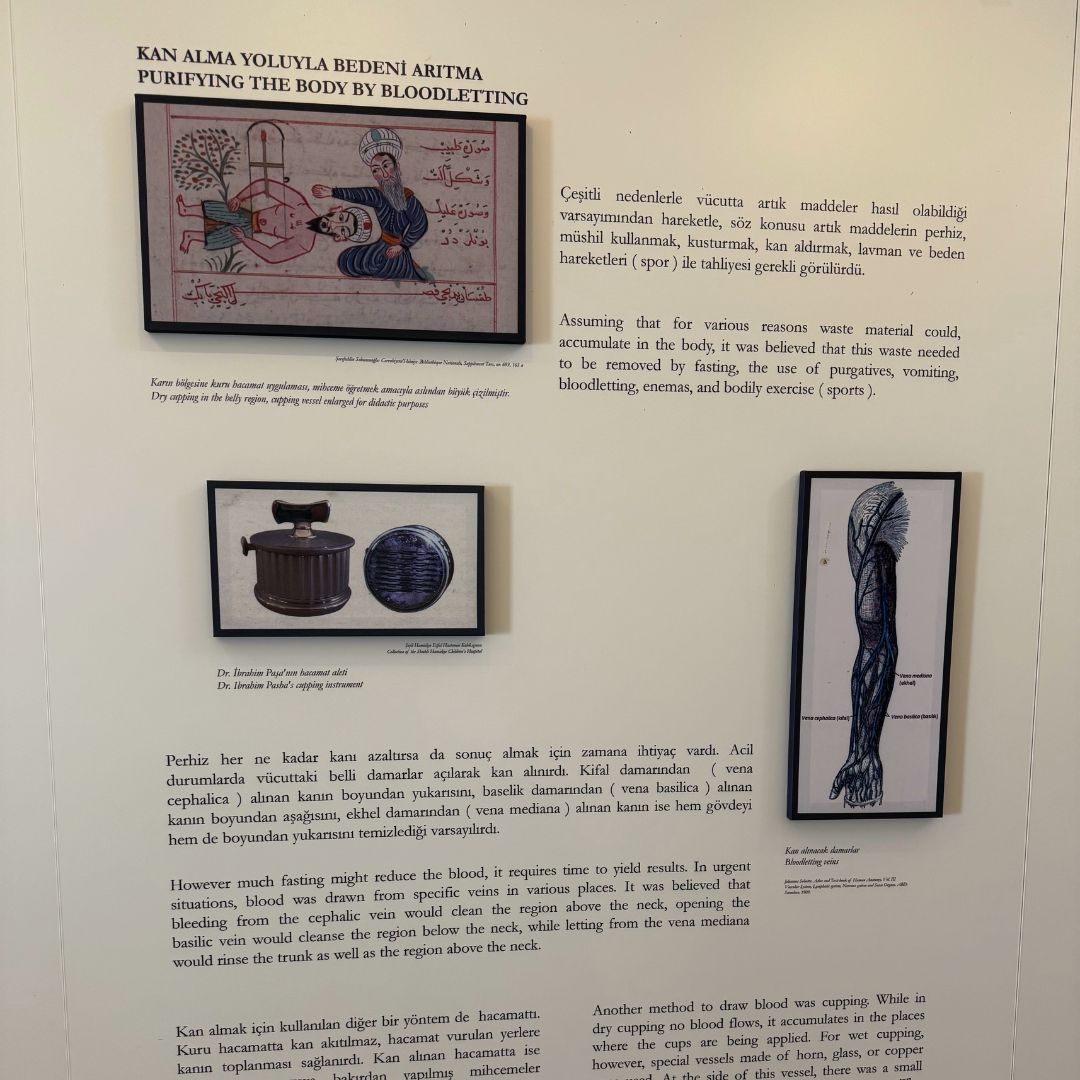
Both dry (like what athletes use today) and wet cupping (which involved cutting the skin and removing stagnant blood).
CHIROPRACTIC TOOLS
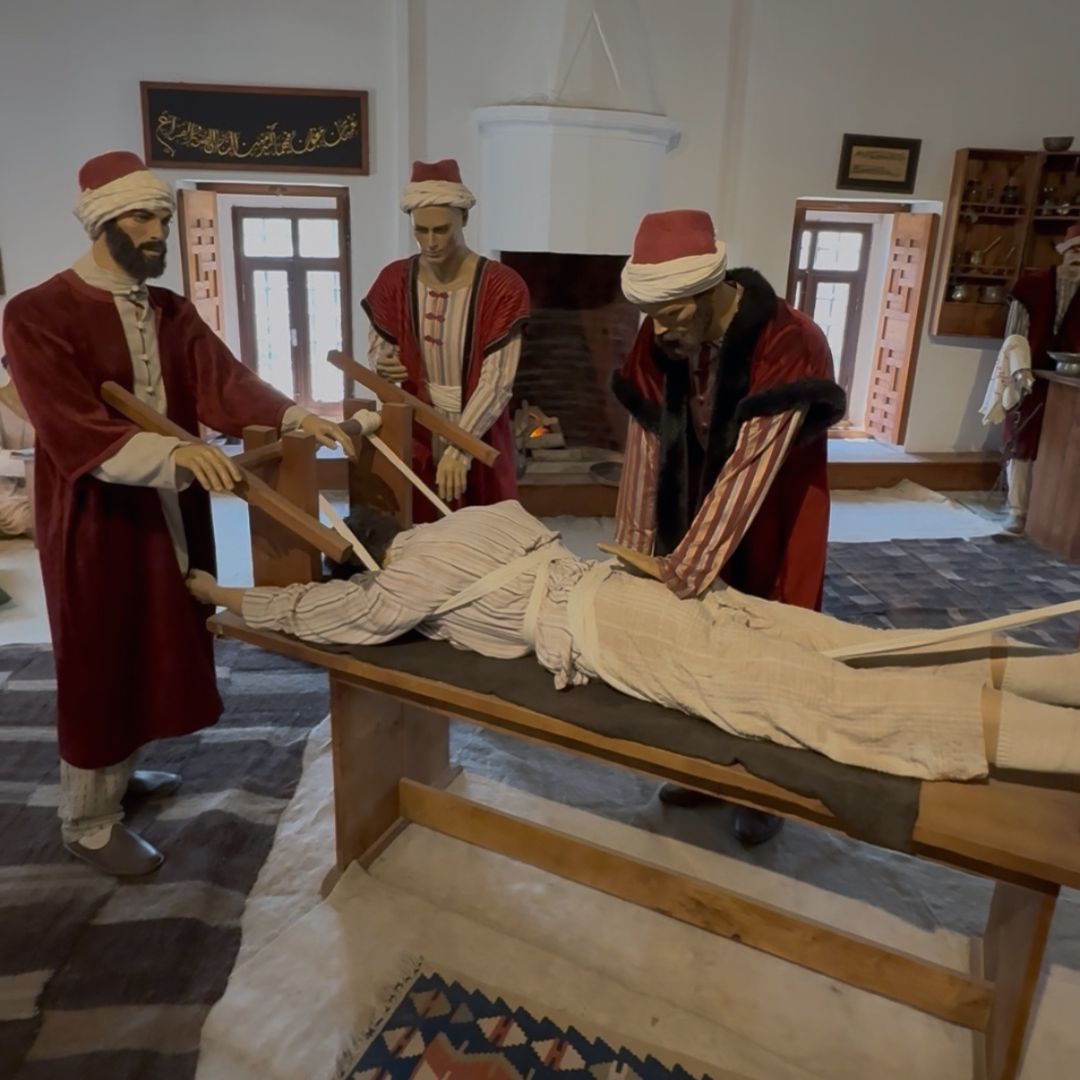
One room even displayed a decompression device—a primitive but effective predecessor to machines used in today’s chiropractic offices.
These weren’t trends. They were timeless practices built on the belief that the body could heal itself when given the right environment.
A MOMENT OF REFLECTION
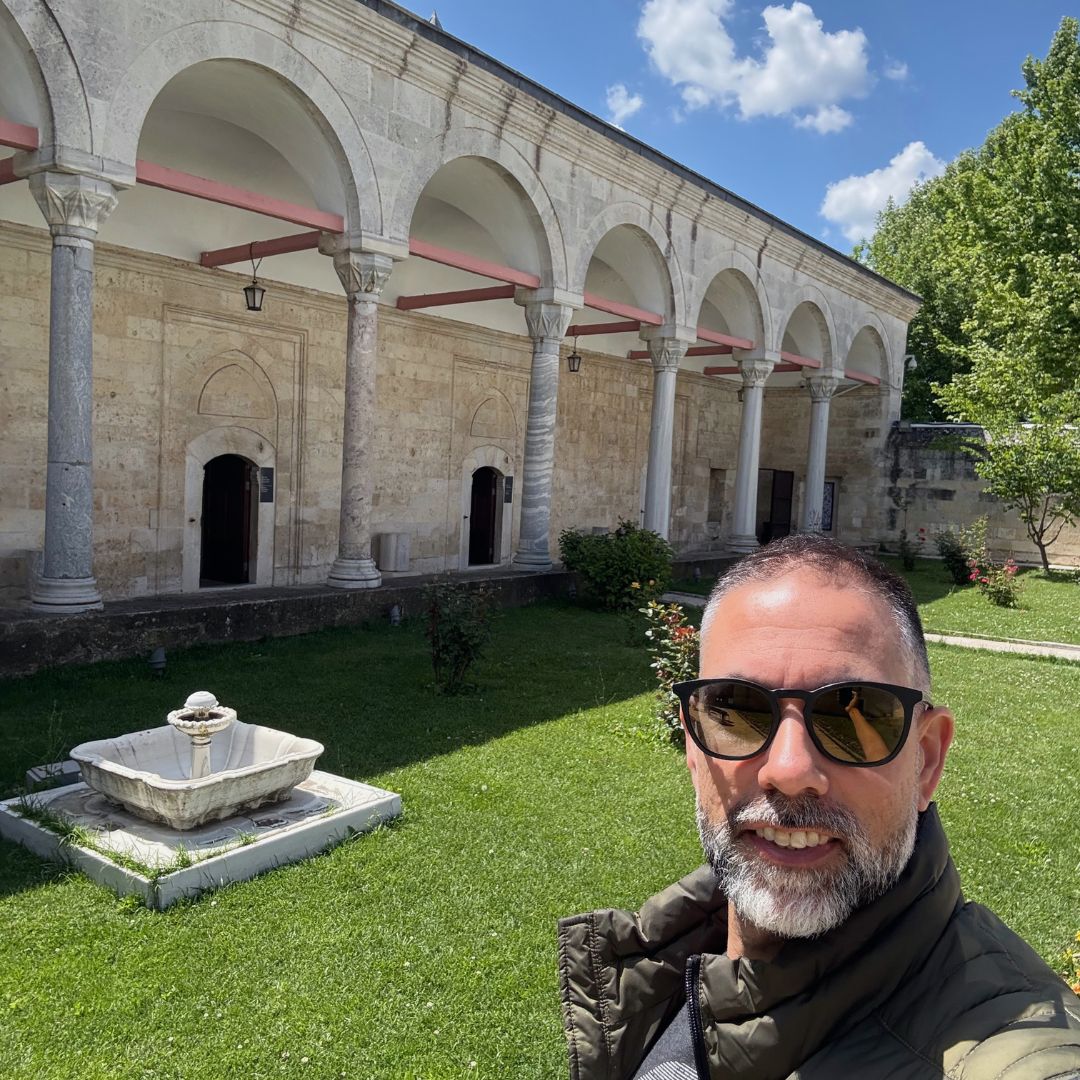
Standing in the middle of that hexagonal chamber, I paused.
I imagined the patients. The healers. The quiet strength of the space.
And I felt a deep sense of balance.
It was a reminder that wellness doesn’t have to be complicated.
It begins with removing the noise.
With reconnecting to what is natural.
With honoring the design of your body, mind, and spirit.
As we stepped out of the center, my father turned to me and said:
"I didn’t expect this... that was something else."
He was right.
It was ancient, but it felt like coming home.
If you ever find yourself in Edirne, take a detour.
Visit the Sultan Bayezid II Wellness Center.
It won’t just show you the history of healing—it might just help you reimagine your own.
Got Questions?
I'd love to hear from you! Ask away, and let’s explore the answers together.


